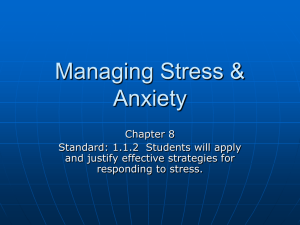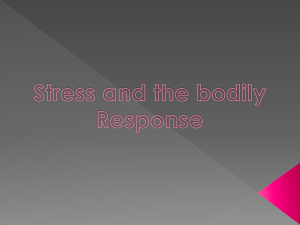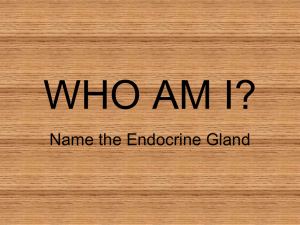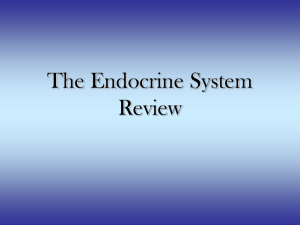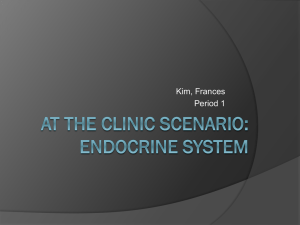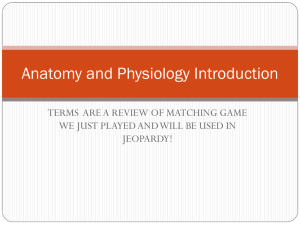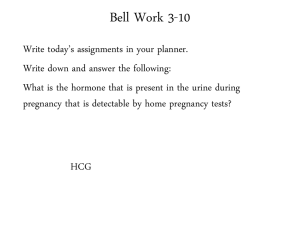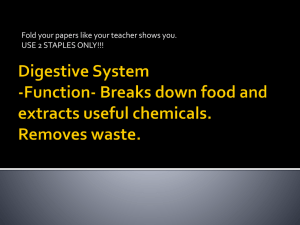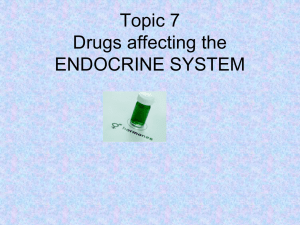SC06_LG_U4 - BC Learning Network
advertisement
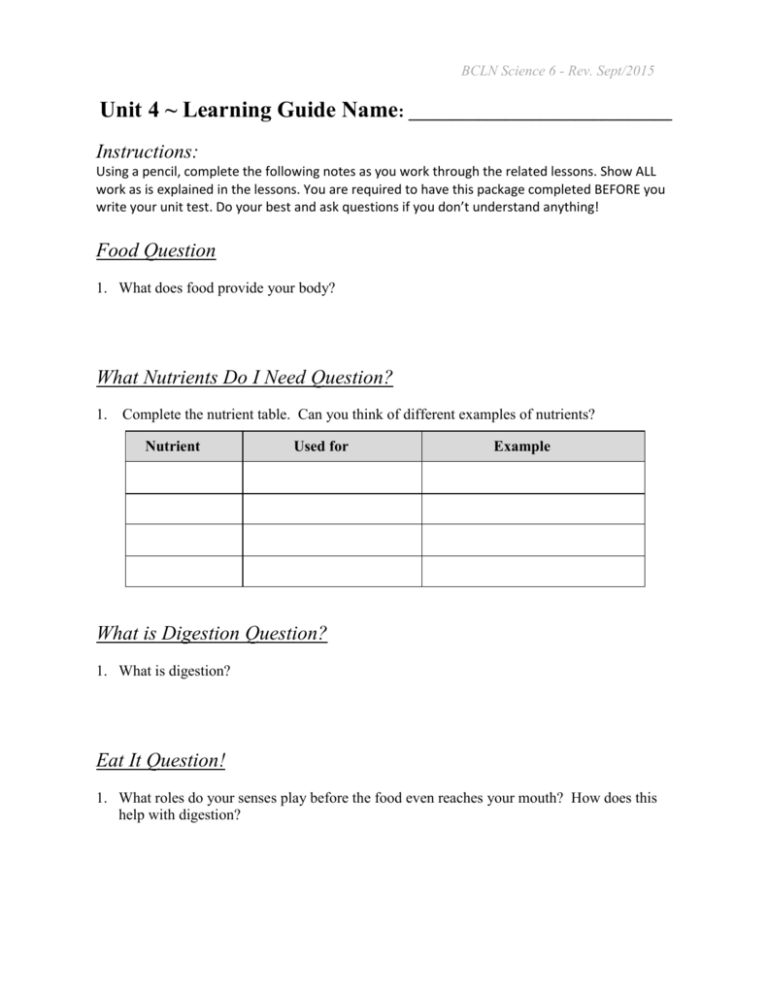
BCLN Science 6 - Rev. Sept/2015 Unit 4 ~ Learning Guide Name: ______________________________ Instructions: Using a pencil, complete the following notes as you work through the related lessons. Show ALL work as is explained in the lessons. You are required to have this package completed BEFORE you write your unit test. Do your best and ask questions if you don’t understand anything! Food Question 1. What does food provide your body? What Nutrients Do I Need Question? 1. Complete the nutrient table. Can you think of different examples of nutrients? Nutrient Used for Example What is Digestion Question? 1. What is digestion? Eat It Question! 1. What roles do your senses play before the food even reaches your mouth? How does this help with digestion? BCLN Science 6 - Rev. Sept/2015 2. What is Bolus? And Swallow Question 1. Why is the Epiglottis so important? 2. Describe the tongue and the Esophagus' role in getting the food (Bolus) down to your stomach. Stomach Question 1. Why is the stomach the widest part of your digestive system and elastic like? Temporary Storage Question 1. How much food (bolus) can your stomach hold? 2. How much time does it take for you to digest your food? Chemical Breakdown of Food Question 1. What does your stomach produce to help break down food? BCLN Science 6 - Rev. Sept/2015 2. How does your stomach protect itself from being burned or damaged during digestion? Physical Breakdown of Food Question 1. What is peristalsis and how does it help with digestion? 2. What is chyme? Small Intestine Question 1. What other organs help with the process of digestion? Explain how they help with digestion by completing the table. Organ What it does 1. 2. 3. 2. Where do the nutrients from the food go after the small intestine? The wastes? Keeping Our Bodies Healthy Questions 1. Why does our body need to remove wastes? 2. What are some of the smaller systems our body uses to rid wastes? BCLN Science 6 - Rev. Sept/2015 Our Kidneys Are Important Questions 1. What are the two important roles that the kidney have? Cleaning the Blood Questions 1. Which processes in the body can produce waste? 2. What are the waste products your kidneys remove? Removing the Waste Question 1. Where is the waste temporarily stored until it can be removed from the body? Endocrine System Questions 1. Why is the Endocrine System so important? 2. What are hormones and what do they do? 3. What is the "master gland" and what does it do? BCLN Science 6 - Rev. Sept/2015 Thyroid Gland Questions 1. Which systems does the Thyroid Gland affect? 2. What do the hormones from the Thyroid Gland do? Adrenal Gland Questions 1. What do your adrenal glands do? 2. There are two parts to the adrenal glands, identify what they produce and explain their function. Complete the table below with the information. Adrenal Gland What it Produces. Part Adrenal Cortex Its Function in Your Body Adrenal Medulla Pancreas Questions 1. The pancreas has two roles what are they? 2. What are the two hormones your pancreas releases and what are their roles in your body? 3. What happens if your pancreas does not work properly? BCLN Science 6 - Rev. Sept/2015 Answer Key Food Answer: 1. Food provides your body with energy and helps your body function. What Nutrients Do I Need Answer: 1. Nutrient Used for Example carbohydrates energy Cake, muffins, pasta Pro protein building and repairing Nuts, dairy fats store energy oils vitamins/minerals maintain health Green vegetables (iron), fruits (vitamins) What Is Digestion Answer? 1. Digestions is when your body takes all of the food you consume and processes it for its nutrients. Eat It Answer: 1. Your senses jump into action, you smell it, see it, and think about it. This starts the production of saliva (spit). Saliva contains a special ingredient (enzyme) that works to break down the starchy foods in your mouth. 2. Bolus is the chewed up food and partially digested food ready to be swallowed. And Swallow Answer: 1. The Epiglottis is a flap that blocks food from going down your windpipe which would make you choke. Stomach Answer: 1. The stomach needs to hold large amounts of food temporarily so it needs to be stretchy and large. Temporary Storage Answer: 1. Your stomach can hold up to 4 liters of food. 2. It takes 4 hours for you to digest your food. Chemical Breakdown of Food Answer: 1. Your stomach produces enzymes and hydrochloric acid to help break down food. 2. Your stomach secretes a mucous to protect the stomach walls. Physical Breakdown of Food Answer: 1. Peristalsis is when muscles create waves of contractions along your stomach wall to help break food down into smaller pieces. 2. Chyme is the food completely mixed up and ready to leave the stomach. Small Intestine Answer: 1. Organ What it does 1. Liver produces bile, which helps absorb fats 2. Gallbladder stores bile until it's needed 3. Pancreas makes juices that help the body digest fats, carbohydrates, and proteins 2. The nutrients from the food get absorbed into the blood. The wastes get moved down to the large intestine. Keeping Our Bodies Healthy Answer: 1. We need to remove wastes from our body because they become toxic. 2. Some of the smaller systems that remove wastes are tears, shedding skin cells, seat, and tears. Our Kidneys Are Important Answer: 1. Our kidneys filter all of the wastes out of your blood and produce urine to get rid of the waste. Cleaning the Blood Answer: 1. Processes like digestion and metabolism (creating energy from food) create wastes. 2. Your kidney removes waste and excess water (turns it into urine). Removing the Waste Answer: 1. The waste is temporarily stored in the bladder. Endocrine System Answer: 1. The endocrine system has all of our glands that release hormones in it. 2. Hormones are special chemicals your body makes to help it perform certain functions, like grow. BCLN Science 6 - Rev. Sept/2015 3. The pituitary gland is the master gland and it controls many other glands in our body. Thyroid Gland Answer: 1. Most of your body is affected by thyroid hormones, including your heart, skin, digestive system and nervous system. 2. These hormones help to develop your brain, bones and muscles, and also help to keep your body at the right temperature and help it use energy. Your thyroid gland helps you grow. Adrenal Gland Answer: 1. Your adrenal glands are extremely important to your body when you are stressed or very sick. 2. Adrenal Gland Part What it Produces. Its Function in Your Body -control the salt and water balance in the body, how Corticosteroids your body responds to stress, metabolism (energy), Adrenal Cortex the immune system (how healthy you are), and puberty. -increases blood pressure and heart rate when the Adrenal Medulla Adrenaline body experiences stress. So it helps your react faster when you are scared or stressed. Pancreas Answer: 1. It is a hormone secreting gland and it also releases digestive enzymes into the small intestine to help digest fats, carbohydrates, and proteins. 2. The pancreas secretes two important hormones called insulin and glucagon. Both hormones work together to maintain a steady level of sugar (glucose) in the blood. This keeps your body supplied with fuel to produce 3. and maintain stores of energy. You will get diabetes if your body doesn’t get enough insulin.
